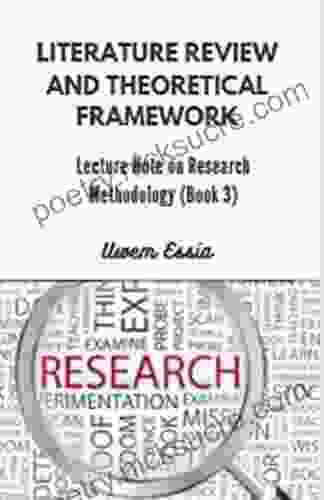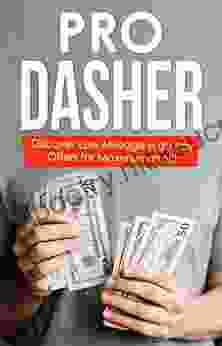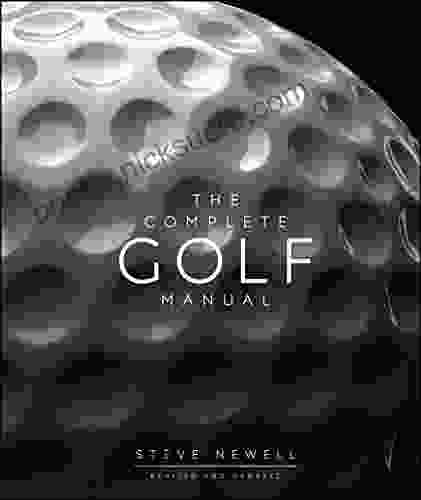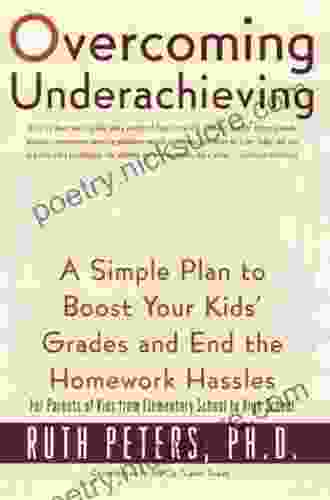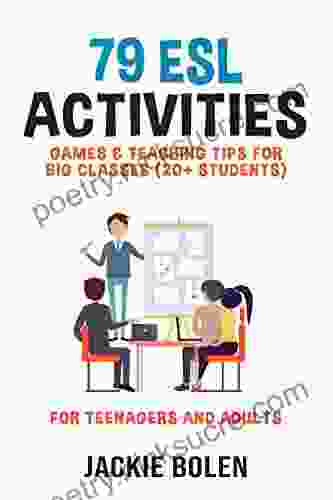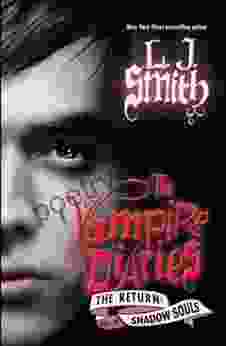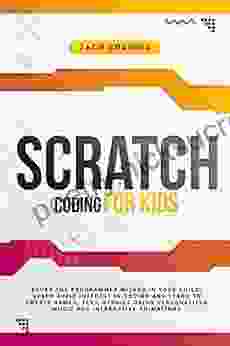Literature Review and Theoretical Framework: Comprehensive Lecture Note on Research Methodology

4.3 out of 5
| Language | : | English |
| File size | : | 304 KB |
| Text-to-Speech | : | Enabled |
| Screen Reader | : | Supported |
| Enhanced typesetting | : | Enabled |
| Word Wise | : | Enabled |
| Print length | : | 54 pages |
| Lending | : | Enabled |
Research methodology is a vital component of any academic endeavor. It provides the roadmap for conducting research, ensuring its rigor and validity. Within this framework, literature review and theoretical framework play crucial roles in shaping the research process and outcomes. This lecture note aims to provide a comprehensive overview of these concepts, guiding researchers through the intricacies of research methodology.
What is a Literature Review?
A literature review is a systematic and critical examination of existing research relevant to a particular research topic. It involves identifying, evaluating, and synthesizing previous studies, books, articles, and other scholarly sources to gain an in-depth understanding of the field. The primary goal of a literature review is to:
- Identify knowledge gaps and formulate research questions
- Establish the context and significance of the research
- Avoid duplication of effort and build upon existing research
- Present a comprehensive overview of the current state of knowledge
Steps in Conducting a Literature Review
- Define the research topic and scope: Clearly outline the focus of your research and the specific area you intend to investigate.
- Identify relevant sources: Utilize various databases, scholarly journals, and online resources to locate relevant research materials.
- Read and critically evaluate sources: Carefully examine the studies, articles, and books, assessing their relevance, methodology, findings, and limitations.
- Organize and synthesize findings: Group related findings together, identify themes, and draw connections between different studies.
- Integrate into research design: Use the insights gained from the literature review to inform your research questions, methodology, and theoretical framework.
Common Pitfalls in Literature Reviews
- Superficial review: Failing to conduct a thorough and in-depth analysis of the literature.
- Lack of critical evaluation: Uncritically accepting the findings of previous studies without assessing their strengths and weaknesses.
- Bias: Allowing personal biases or preconceived notions to influence the selection and interpretation of sources.
- Plagiarism: Failing to properly cite and reference the sources used in the literature review.
- Lack of relevance: Including sources that are not directly related to the research topic.
What is a Theoretical Framework?
A theoretical framework is a set of concepts, assumptions, and theories that provide a lens through which to view and interpret research findings. It serves as a foundation for understanding the phenomena under investigation and guiding the research process. The primary functions of a theoretical framework are to:
- Provide a conceptual framework for understanding the research topic
- Explain the relationships between variables and phenomena
- Formulate hypotheses and research questions
- Interpret and analyze research findings
Types of Theoretical Frameworks
There are various types of theoretical frameworks, each with its own strengths and weaknesses. Some common frameworks include:
- Functionalist theory: Emphasizes the interconnectedness of social institutions and how they contribute to the stability and functioning of society.
- Conflict theory: Focuses on the conflicts and power struggles that arise within and between social groups.
- Symbolic interactionism: Explores how individuals interact and create meaning through symbols and language.
- Feminist theory: Examines the role of gender in shaping social experiences and power dynamics.
- Postcolonial theory: Critiques the legacy of colonialism and its impact on marginalized communities.
Choosing an Appropriate Theoretical Framework
The choice of theoretical framework depends on the specific research topic and research questions. It is important to consider the following factors when selecting a framework:
- Relevance to the research topic
- Explanatory power and ability to provide insights
- Scope and level of analysis
- Compatibility with the research methodology
Integrating the Literature Review and Theoretical Framework
The literature review and theoretical framework are closely interconnected and should inform each other throughout the research process. The findings of the literature review can help refine and strengthen the theoretical framework, while the theoretical framework provides a lens through which to interpret and analyze the literature. This interplay between the two helps ensure a cohesive and well-grounded research design.
Literature reviews and theoretical frameworks are essential components of research methodology. By conducting a thorough literature review, researchers gain a deep understanding of the existing body of knowledge, identify research gaps, and establish the context for their own research. Selecting an appropriate theoretical framework provides a conceptual foundation for interpreting research findings and explaining the relationships between variables. The integration of these elements ensures a rigorous and valid research design, contributing to the advancement of knowledge and the understanding of complex phenomena.
References
- Creswell, J. W. (2014). Research design: Qualitative, quantitative, and mixed methods approaches (4th ed.). Thousand Oaks, CA: Sage.
- Punch, K. F. (2014). to research methods in education (7th ed.). London: Sage.
- Saunders, M., Lewis, P., & Thornhill, A. (2016). Research methods for business students (7th ed.). Harlow, UK: Pearson.
- Yin, R. K. (2016). Qualitative research from start to finish (2nd ed.). New York, NY: Guilford Press.
4.3 out of 5
| Language | : | English |
| File size | : | 304 KB |
| Text-to-Speech | : | Enabled |
| Screen Reader | : | Supported |
| Enhanced typesetting | : | Enabled |
| Word Wise | : | Enabled |
| Print length | : | 54 pages |
| Lending | : | Enabled |
Do you want to contribute by writing guest posts on this blog?
Please contact us and send us a resume of previous articles that you have written.
 Fiction
Fiction Non Fiction
Non Fiction Romance
Romance Mystery
Mystery Thriller
Thriller SciFi
SciFi Fantasy
Fantasy Horror
Horror Biography
Biography Selfhelp
Selfhelp Business
Business History
History Classics
Classics Poetry
Poetry Childrens
Childrens Young Adult
Young Adult Educational
Educational Cooking
Cooking Travel
Travel Lifestyle
Lifestyle Spirituality
Spirituality Health
Health Fitness
Fitness Technology
Technology Science
Science Arts
Arts Crafts
Crafts DIY
DIY Gardening
Gardening Petcare
Petcare Jackie Bolen
Jackie Bolen Richard Mcafee
Richard Mcafee Scott Allan
Scott Allan Anna Watson
Anna Watson Lily Dunn
Lily Dunn Sandy Bodeau
Sandy Bodeau Worley Faver
Worley Faver Ann Mccallum Staats
Ann Mccallum Staats Suzanne Clark
Suzanne Clark Robin Esrock
Robin Esrock Joey Myers
Joey Myers Alexander L Chapman
Alexander L Chapman H M Schey
H M Schey Ralph Cockburn
Ralph Cockburn Joshua Shifrin
Joshua Shifrin Ray Moynihan
Ray Moynihan Oskar Morgenstern
Oskar Morgenstern Jack Perconte
Jack Perconte Eric Greitens
Eric Greitens Nisha Garg
Nisha Garg Ellen Dugan
Ellen Dugan Omari Bouknight
Omari Bouknight John Pullen
John Pullen Dave Whitlock
Dave Whitlock Daniel Isberner
Daniel Isberner Tanmay Mehta
Tanmay Mehta Jill Lepore
Jill Lepore John Edwards
John Edwards Silvia M Lindtner
Silvia M Lindtner Ralph Waldo Emerson
Ralph Waldo Emerson Jonathan Pd Buckley
Jonathan Pd Buckley Jacqueline Winslow
Jacqueline Winslow Lisa Manterfield
Lisa Manterfield Lane Demas
Lane Demas C W Farnsworth
C W Farnsworth Pradeepa Narayanaswamy
Pradeepa Narayanaswamy Geryn Childress
Geryn Childress Daphne Poltz
Daphne Poltz Bella Forrest
Bella Forrest Adil E Shamoo
Adil E Shamoo Maggie Downs
Maggie Downs Julie C Meloni
Julie C Meloni Suzanne I Barchers
Suzanne I Barchers Caroline Miller
Caroline Miller Lina Beard
Lina Beard Sarah Stodola
Sarah Stodola R K Agarwal
R K Agarwal Susan Spicer
Susan Spicer Stacey A Shannon
Stacey A Shannon Paul Bloom
Paul Bloom Jenn Bennett
Jenn Bennett Rebecca Carroll
Rebecca Carroll Annaka Harris
Annaka Harris Dannah Gresh
Dannah Gresh Nicholas Thomas
Nicholas Thomas Helen Adrienne
Helen Adrienne Elizabeth Wissner Gross
Elizabeth Wissner Gross Douglas Perry
Douglas Perry Marie Cirano
Marie Cirano Zach Davis
Zach Davis Annabel Streets
Annabel Streets Lily Siou
Lily Siou Martin Meredith
Martin Meredith Breeda Bermingham
Breeda Bermingham Anne Sylvie Malbrancke
Anne Sylvie Malbrancke Rutger Bregman
Rutger Bregman Anna Della Subin
Anna Della Subin Valerie Hansen
Valerie Hansen Philip Reed
Philip Reed Kathy Morey
Kathy Morey Margaret Paul
Margaret Paul Dan Vogel
Dan Vogel Roy M Wallack
Roy M Wallack Henry Dillon
Henry Dillon Steve Newell
Steve Newell Peter Hathaway Capstick
Peter Hathaway Capstick Trevor Hartman
Trevor Hartman Dan Koboldt
Dan Koboldt Jay Young
Jay Young Steve Grant
Steve Grant Pierluigi Barrotta
Pierluigi Barrotta Ben Shneiderman
Ben Shneiderman Sally Annjanece Stevens
Sally Annjanece Stevens Junior Health Institute
Junior Health Institute Linda K Miller
Linda K Miller Hope Comerford
Hope Comerford Richard C Schwartz
Richard C Schwartz Illustrated Edition Kindle Edition
Illustrated Edition Kindle Edition June Hur
June Hur Barry Dainton
Barry Dainton Larry Thornberry
Larry Thornberry Jeff Kuehl
Jeff Kuehl Mark Mckinney
Mark Mckinney Louise Katz
Louise Katz Noel D Justice
Noel D Justice Neal Shusterman
Neal Shusterman Dr Harper
Dr Harper Melvin Fitting
Melvin Fitting Jennifer Kostick
Jennifer Kostick Katharine Beals
Katharine Beals Helen E Lees
Helen E Lees Jackson Carter
Jackson Carter Ichigo Takano
Ichigo Takano Damian Hall
Damian Hall Julie Plagens
Julie Plagens Krista Marson
Krista Marson Steve Oldenburg
Steve Oldenburg Chic Scott
Chic Scott Reinhard Kleist
Reinhard Kleist Vladimir Vasiliev
Vladimir Vasiliev Shannon Vallor
Shannon Vallor Michael Labossiere
Michael Labossiere Sukhveer Singh
Sukhveer Singh Chase Hassen
Chase Hassen John Gignilliat
John Gignilliat Lizzie Collingham
Lizzie Collingham Peyton Curley
Peyton Curley Stephanie Cave
Stephanie Cave Jemar Tisby
Jemar Tisby Tony Osgood
Tony Osgood Laurie Varga
Laurie Varga Dave Hall
Dave Hall Anna Ivey
Anna Ivey Jacob Ward
Jacob Ward Sandy Camillo
Sandy Camillo Bob Madgic
Bob Madgic Howard Means
Howard Means Julian Of Norwich
Julian Of Norwich Chris Gore
Chris Gore M Shawn Copeland
M Shawn Copeland Zach Hunter
Zach Hunter Darryl Belfry
Darryl Belfry Jonathan Franklin
Jonathan Franklin Robby Weber
Robby Weber Rebecca A Moyes
Rebecca A Moyes Christine Hopfgarten
Christine Hopfgarten Horace Kephart
Horace Kephart Graham Robb
Graham Robb Angela Saini
Angela Saini Ian Moulding
Ian Moulding Emmett W Hines
Emmett W Hines Sara Dyer
Sara Dyer Chris Fregly
Chris Fregly Sparknotes
Sparknotes Joy Dawson
Joy Dawson Jennifer L Lopez
Jennifer L Lopez Monroe Wildrose
Monroe Wildrose Sean Bartram
Sean Bartram Illysa R Foster
Illysa R Foster Fumio Sasaki
Fumio Sasaki L J Smith
L J Smith J Scott Long
J Scott Long David Berry
David Berry Christopher T Coughlin
Christopher T Coughlin Anna Grafl
Anna Grafl Dante Fortson
Dante Fortson Arcturus Publishing
Arcturus Publishing Les Livingstone
Les Livingstone George Lakoff
George Lakoff Matthew Cobb
Matthew Cobb G Norman Lippert
G Norman Lippert Julie Creffield
Julie Creffield Freddy Silva
Freddy Silva Cade Courtley
Cade Courtley Michael Hodgson
Michael Hodgson Tali Sharot
Tali Sharot William Goldman
William Goldman L A Cotton
L A Cotton Holly Bourne
Holly Bourne Brian Daccord
Brian Daccord Timothy P Schultz
Timothy P Schultz Hill Harper
Hill Harper John Dunn
John Dunn Malcolm S Thaler
Malcolm S Thaler Bob Labbe
Bob Labbe Jenny Jacobs
Jenny Jacobs Charles J Sanders
Charles J Sanders Kristina Cowan
Kristina Cowan Richard A Ruth
Richard A Ruth Dave Hughes
Dave Hughes Shawn Shallow
Shawn Shallow James F Twyman
James F Twyman Steven A Fino
Steven A Fino Paul Logothetis
Paul Logothetis Katie Krimer Ma Lcsw
Katie Krimer Ma Lcsw Melanie Dickerson
Melanie Dickerson John Dickson
John Dickson Gary Chapman
Gary Chapman Patricia Romanowski Bashe
Patricia Romanowski Bashe Holly Chism
Holly Chism Jean Barbre
Jean Barbre Stefan Hollos
Stefan Hollos Creative Guy
Creative Guy J E Esslemont
J E Esslemont Kristian Berg
Kristian Berg Bren Smith
Bren Smith The Pinnacle Review
The Pinnacle Review Stefanie Japel
Stefanie Japel David Soucie
David Soucie Pawel Malczewski
Pawel Malczewski Bruce Lockwood
Bruce Lockwood Anna Crowley Redding
Anna Crowley Redding Mary E Pearson
Mary E Pearson Buddy Lee
Buddy Lee Naomi Tomky
Naomi Tomky Charlene Beswick
Charlene Beswick John Yates
John Yates Chronicle Books
Chronicle Books Tyler Richards
Tyler Richards E R Truitt
E R Truitt Adele Faber
Adele Faber Nancy Marie White
Nancy Marie White Curtis Collins
Curtis Collins Matthew Locricchio
Matthew Locricchio Donna D Ignatavicius
Donna D Ignatavicius Josephine Mccarthy
Josephine Mccarthy Gill James
Gill James Ling Seto
Ling Seto Anna Flores Locke
Anna Flores Locke Tim Young
Tim Young Julie A Ross
Julie A Ross John Van Wyhe
John Van Wyhe Heidi Kreider
Heidi Kreider Margaret Rogerson
Margaret Rogerson Neel Doshi
Neel Doshi Christopher Seddon
Christopher Seddon Lexi Ryan
Lexi Ryan Ray Eye
Ray Eye James C Zimring
James C Zimring Thomas A Garrity
Thomas A Garrity Barbara Sealock
Barbara Sealock Winton Porter
Winton Porter Anna Quindlen
Anna Quindlen Shelley Emling
Shelley Emling Ruby Mcconnell
Ruby Mcconnell Hannah Testa
Hannah Testa Sajni Patel
Sajni Patel Marjorie Savage
Marjorie Savage Roger Hall
Roger Hall Harnarayan Singh
Harnarayan Singh Maya Van Wagenen
Maya Van Wagenen Ariel Dalfen
Ariel Dalfen M Terese Verklan
M Terese Verklan Stacey Williams
Stacey Williams Jonathan R Brennan
Jonathan R Brennan Patricia Ladis
Patricia Ladis Ann Voskamp
Ann Voskamp Annette Burns
Annette Burns Christelle Dabos
Christelle Dabos Stephen Tarsitano
Stephen Tarsitano Will Kurt
Will Kurt Larry Semento
Larry Semento Quinn Loftis
Quinn Loftis Sally Black
Sally Black Paul Mendelson
Paul Mendelson Todd Denault
Todd Denault Christina Henry De Tessan
Christina Henry De Tessan Kennedy Achille
Kennedy Achille Bethany Saltman
Bethany Saltman Isaac Fitzsimons
Isaac Fitzsimons Finn Aagaard
Finn Aagaard Barry Schwartz
Barry Schwartz Susan G Solomon
Susan G Solomon Kendall Coyne
Kendall Coyne Cathy Glass
Cathy Glass Nelson Dellis
Nelson Dellis Frank Thomas
Frank Thomas Richard Appleton
Richard Appleton College Hippo
College Hippo Sara Wickham
Sara Wickham Steve Olson
Steve Olson Kass Morgan
Kass Morgan Sean Covey
Sean Covey C J Brown
C J Brown Johnny Chuong
Johnny Chuong Good Books
Good Books Steven Yellin
Steven Yellin Skeleton Steve
Skeleton Steve Boye Lafayette De Mente
Boye Lafayette De Mente Marva Boatman
Marva Boatman Charles Dickens
Charles Dickens Gilbert J Grant Md
Gilbert J Grant Md Paulo Guillobel
Paulo Guillobel Robert F Boszhardt
Robert F Boszhardt Dan Gardner
Dan Gardner Emily J Taylor
Emily J Taylor Jay Allan
Jay Allan Linda Lewis Alexander
Linda Lewis Alexander Robert A Cook
Robert A Cook Helge Kragh
Helge Kragh John Baichtal
John Baichtal Anna Lowenhaupt Tsing
Anna Lowenhaupt Tsing Todd Radom
Todd Radom Michael Burnett
Michael Burnett L Chapman
L Chapman Timothy Ellis
Timothy Ellis Danny Jones
Danny Jones Sheela Raja
Sheela Raja Morton Manus
Morton Manus Sharman Apt Russell
Sharman Apt Russell Richard A Swanson
Richard A Swanson Bob Cary
Bob Cary Michael Witwer
Michael Witwer Rick Page
Rick Page Horace Freeland Judson
Horace Freeland Judson Mordecai Orimiladeye
Mordecai Orimiladeye William P Young
William P Young Tarani Chandola
Tarani Chandola Margaret Jean Langstaff
Margaret Jean Langstaff Frances Schultz
Frances Schultz Sally Connolly
Sally Connolly Michael Tan
Michael Tan Janine Marsh
Janine Marsh George James Grinnell
George James Grinnell Livia Bitton Jackson
Livia Bitton Jackson Lisa Randall
Lisa Randall Steve Bowkett
Steve Bowkett Matthew Rudy
Matthew Rudy Cb Droege
Cb Droege Kyung Won Chung
Kyung Won Chung Barak A Bassman
Barak A Bassman Steven G Krantz
Steven G Krantz Martin N Seif
Martin N Seif Chris Bailey
Chris Bailey Anna Wood
Anna Wood Caryl Phillips
Caryl Phillips James Burke
James Burke Dave Canterbury
Dave Canterbury John Murray
John Murray Asker Jeukendrup
Asker Jeukendrup Mikael Lindnord
Mikael Lindnord Scott P Sells
Scott P Sells Gloria Chadwick
Gloria Chadwick Susan Straub
Susan Straub Julia Galef
Julia Galef Sharon Rowley
Sharon Rowley James P Sethna
James P Sethna Randy J Paterson
Randy J Paterson Gemma Bray
Gemma Bray Annalyn Ng
Annalyn Ng Philip Gibson
Philip Gibson P M Gilbert
P M Gilbert Sean Purchase
Sean Purchase Darcie Little Badger
Darcie Little Badger Judy Corry
Judy Corry Steve Schwartz
Steve Schwartz Lori L Tharps
Lori L Tharps Dr Sarita Uhr
Dr Sarita Uhr Ken Robinson
Ken Robinson Crystal Cook
Crystal Cook Susan M Schneider
Susan M Schneider Steven Callahan
Steven Callahan Zach Codings
Zach Codings H Jerome Chapman
H Jerome Chapman Jenna Evans Welch
Jenna Evans Welch Prime Hall
Prime Hall Karen Bassie Sweet
Karen Bassie Sweet Mike Roberts
Mike Roberts L J Martin
L J Martin Gwen Mckee
Gwen Mckee Anna B Doe
Anna B Doe Elisabeth Haich
Elisabeth Haich Melissa Mortenson
Melissa Mortenson Victor Stringer
Victor Stringer Walter Mischel
Walter Mischel Claire Walter
Claire Walter Aaron Mahnke
Aaron Mahnke Kalman Samuels
Kalman Samuels David Woods
David Woods Bert Mendelson
Bert Mendelson Kristen L Mauk
Kristen L Mauk Ford R Bryan
Ford R Bryan W W Sawyer
W W Sawyer Becky Wade
Becky Wade Patrick Torsell
Patrick Torsell Craig Ramsay
Craig Ramsay Peter Wacht
Peter Wacht Jay Spence
Jay Spence Wendy Leo Smith
Wendy Leo Smith Peter L Falkingham
Peter L Falkingham Ann Valett
Ann Valett Justine Gregory Williams
Justine Gregory Williams Tim Cahill
Tim Cahill Eddie Jones
Eddie Jones Kate Mcvaugh
Kate Mcvaugh Stephen J Pyne
Stephen J Pyne Scott Shupe
Scott Shupe Dean Buonomano
Dean Buonomano James C Scott
James C Scott Roy R Grinker
Roy R Grinker R A Salvatore
R A Salvatore Sherry B Ortner
Sherry B Ortner Robert Gerver
Robert Gerver Steven Munatones
Steven Munatones Harold Davis
Harold Davis Sam Demas
Sam Demas Zoe Moore
Zoe Moore Bernard Stiegler
Bernard Stiegler Antonio Robert
Antonio Robert Michael F Nenes
Michael F Nenes Ellen Painter Dollar
Ellen Painter Dollar Randall Fitzgerald
Randall Fitzgerald Steve Bennett
Steve Bennett Louis Van Dyke
Louis Van Dyke Guy Windsor
Guy Windsor Suzanne Girard Eberle
Suzanne Girard Eberle Peter Watson
Peter Watson Miley Smiley
Miley Smiley Mark Matlock
Mark Matlock John O Sullivan
John O Sullivan Wayne C Booth
Wayne C Booth Jessa Stone
Jessa Stone Jason
Jason Genevieve Mckay
Genevieve Mckay Luke Schumacher
Luke Schumacher Mike Reilly
Mike Reilly Tara Haelle
Tara Haelle Geoff Greig
Geoff Greig Anna Bright
Anna Bright Dorothy Ours
Dorothy Ours Ann Zaprazny
Ann Zaprazny Robert A Conover
Robert A Conover Earl Hipp
Earl Hipp Vittal S Anantatmula
Vittal S Anantatmula Stuart Tomlinson
Stuart Tomlinson Mishka Shubaly
Mishka Shubaly Rick Sparkman
Rick Sparkman Glen E Clarke
Glen E Clarke Joyce Meyer
Joyce Meyer Stan Gibilisco
Stan Gibilisco Hanumant Deshmukh
Hanumant Deshmukh Seth Stephens Davidowitz
Seth Stephens Davidowitz Joanna Wells
Joanna Wells Peter Richmond
Peter Richmond Harley Mcallister
Harley Mcallister Carl Mckeating
Carl Mckeating Fox Fisher
Fox Fisher Jennifer Dugan
Jennifer Dugan Alex Bromley
Alex Bromley Joe Hyams
Joe Hyams Clive Scarff
Clive Scarff Dana James
Dana James Julian Havil
Julian Havil Michael G Manning
Michael G Manning Christine Field
Christine Field Ann Marie Brown
Ann Marie Brown Nicholas Clapp
Nicholas Clapp Barb Musick
Barb Musick Zena Hitz
Zena Hitz Eleanor J Sullivan
Eleanor J Sullivan
Light bulbAdvertise smarter! Our strategic ad space ensures maximum exposure. Reserve your spot today!
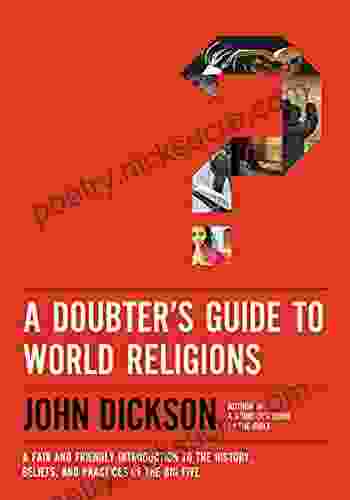
 Giovanni MitchellA Fair and Friendly Introduction to the History, Beliefs, and Practices of...
Giovanni MitchellA Fair and Friendly Introduction to the History, Beliefs, and Practices of...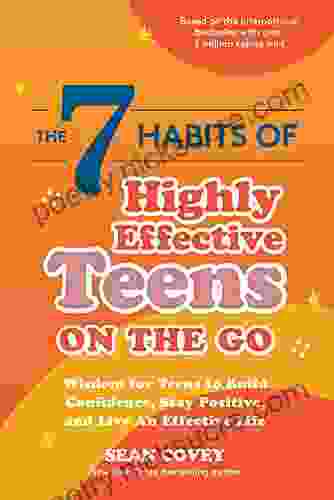
 Julio Ramón RibeyroWisdom for Teens: Building Confidence, Staying Positive, and Living an...
Julio Ramón RibeyroWisdom for Teens: Building Confidence, Staying Positive, and Living an... John MiltonFollow ·11.7k
John MiltonFollow ·11.7k George OrwellFollow ·16.7k
George OrwellFollow ·16.7k Jake CarterFollow ·2.4k
Jake CarterFollow ·2.4k Dylan HayesFollow ·19.4k
Dylan HayesFollow ·19.4k Rubén DaríoFollow ·17k
Rubén DaríoFollow ·17k Kevin TurnerFollow ·17.4k
Kevin TurnerFollow ·17.4k Ben HayesFollow ·16.5k
Ben HayesFollow ·16.5k Trevor BellFollow ·4.7k
Trevor BellFollow ·4.7k
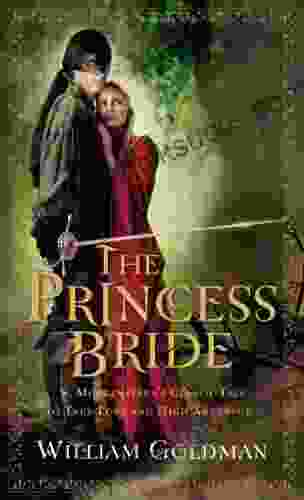
 Aldous Huxley
Aldous HuxleyMorgenstern: A Classic Tale of True Love and High...
Morgenstern is a...
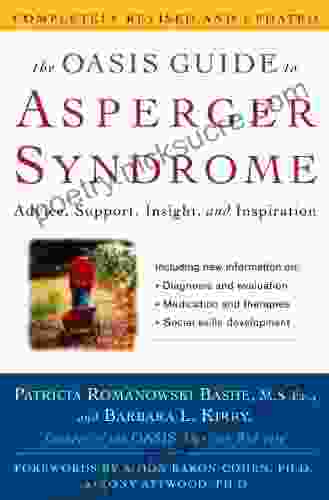
 Beau Carter
Beau CarterThe Oasis Guide to Asperger Syndrome
What is Asperger Syndrome? Asperger...
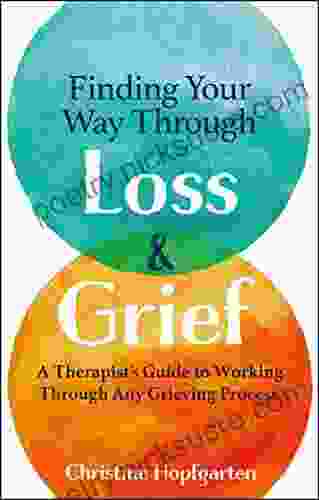
 Chadwick Powell
Chadwick PowellFinding Your Way Through Loss Grief: A Therapist S Guide...
Grief is a natural human emotion that we...
4.3 out of 5
| Language | : | English |
| File size | : | 304 KB |
| Text-to-Speech | : | Enabled |
| Screen Reader | : | Supported |
| Enhanced typesetting | : | Enabled |
| Word Wise | : | Enabled |
| Print length | : | 54 pages |
| Lending | : | Enabled |


